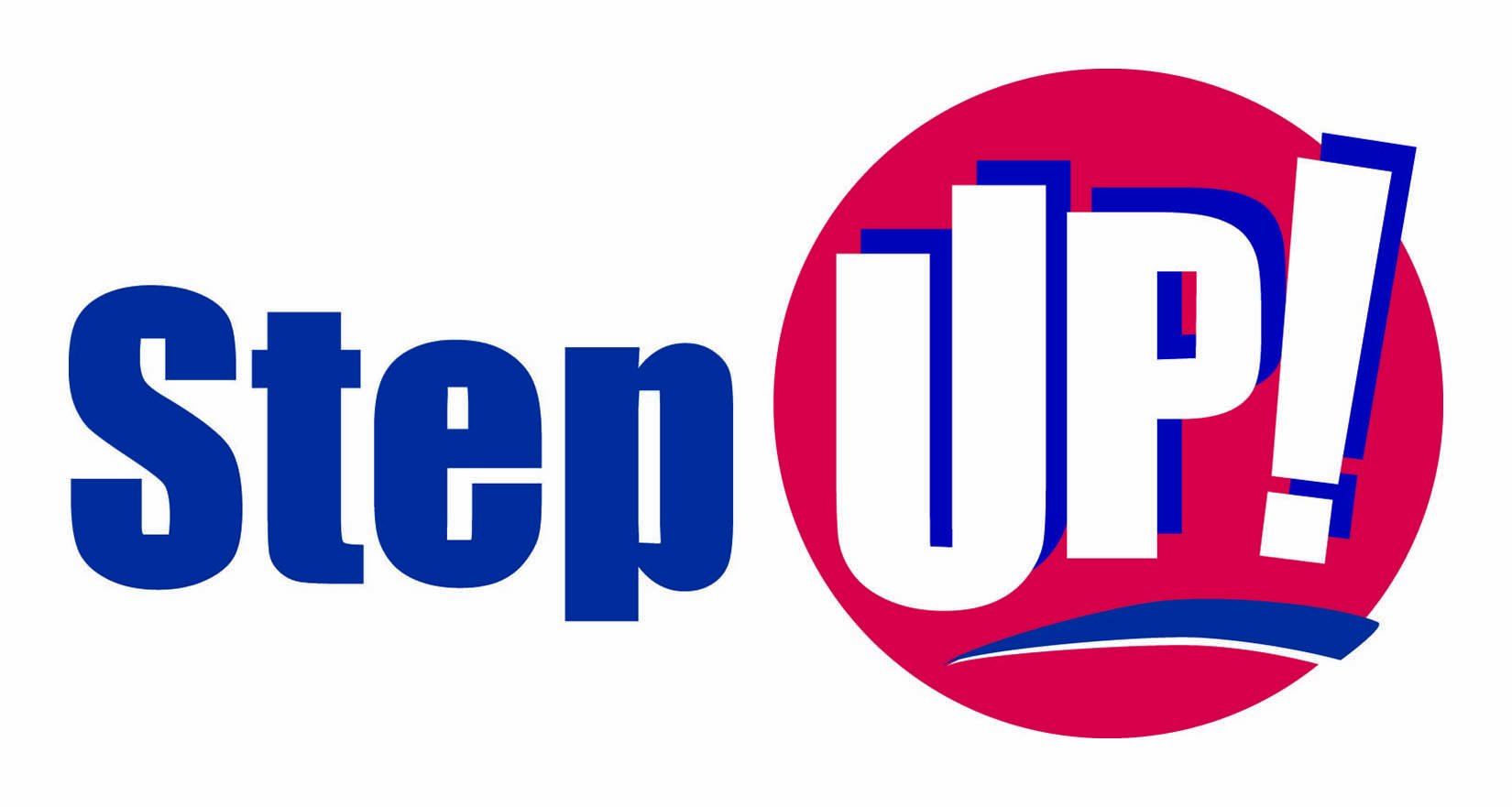PROGRAMS & TOOLS
PREVENTION
PROGRAMMING MATRIX
Step Up! (Be a Leader, Make a Difference) Bystander Intervention
The goals of Step UP! are to “raise awareness of helping behaviors, increase motivation to help, develop skills and confidence when responding to problems or concerns, and ensure the safety and well-being of self and others.”
· In person and virtual
· Customized programs based on group
Website
http://stepupprogram.org/

| Program Name | Level of Evidence | Format | Target Audience | Special Features |
|---|---|---|---|---|
|
Step Up! (Be a Leader, Make a Difference) Bystander Intervention
|
Supported By Evidence |
|
|
Offers a custom version for student athletes |
Methods
- General Training and Train the Trainer. Those interested in becoming facilitators of the Step Up! program can sign up for a Train the Trainer webinar which includes the PPT and all materials. A general training is also available. Further information can be gathered by contacting the Step UP! program directly.
- Initial Training and Sexual Assault Subtopic. The initial Step UP! training is based on proven theories and lasts 90 minutes. It raises awareness about the barriers to intervention, then teaches strategies and skills to overcome those barriers including the 5 Steps, the 5 Ds, the SEEK Model, perspective taking, obedience to perceived authority, community building, and more. Information about Sexual Assault is available and educates on the realities of sexual violence and challenge common misconceptions. Other content includes consent, the sexual violence continuum, warning signs, action steps, and resources. The presentation closes with scenarios allowing participants to apply their knowledge and skills to real world examples of risky situations they may encounter. Program methods include videos, live polling, discussion, scenarios, and a PowerPoint presentation.
- Tier 2 program (Beyond the Basics) is now available. (*Tier 1 is a pre-requisite). Developed in collaboration with the Waters Center for Systems Thinking and the Consortium on Gender Based Violence at The University of Arizona, Tier 2 uses a systems approach to sexual violence
Dosage
Step UP! recommends participation in two training sessions. Participants should attend a 90-minute initial foundational bystander intervention training followed by a 60- minute Sexual Assault education program that then ties back to Step UP!
Logistics
- Facilitators can participate in a Train the Trainer webinar in order to lead presentations. The Step UP! website and Facilitator Guide provides further information on how to present material.
- The initial Step UP! training (which must be completed before the Sexual Assault topic presentation) uses a PowerPoint presentation, video clips, discussion questions, and can include role-play activities which are all available online.
- The Sexual Assault topic presentation, which we encourage you to work with your campus experts on, can be tailored to include local resources and information.
Population Served
Undergraduate students, Faculty Staff, Facilitators
Theoretical Basis For Approach
Step UP! aims to shift campus cultures using a bystander intervention model. Theoretical bases for the design of the program include: the Social-Ecological Model, Bystander Intervention, Pro-social Behavior, Motivational Interviewing, Systems Thinking, Social and Emotional Intelligence, Stages of Change, and social norms (among others). There is also a focus on the role social and cultural identifiers play and the impact they have on intervention.
Program Effectiveness
A study using data from 731 students across 49 trainings evaluated the Step UP! Bystander Intervention Program was published in the American Journal of Health Studies. The results found that significantly more student-athletes compared to non-athletes reported witnessing 4 of the 5 problem behaviors, and participation significantly improved knowledge, attitudes, and self-efficacy to use bystander intervention behaviors among collegiate student-athletes and non-athletes.
PARTICIPATING COLLEGES AND UNIVERSITIES
Visit the Step Up website to see a full list of participating institutions.
CONSIDERATIONS FOR ADMINIsTRATORS
The Sexual Assault topic presentation is not a stand-alone program. Thus, administrators should consider implementing Step UP! in its entirety which requires an additional 90 minute presentation but also presents the opportunity for other topic presentations to be utilized.
HOW TO ACCESS THIS PROGRAM
Training and program materials are available online at no cost.
Sources
Orsini, M. M., Milroy, J. J., Bernick, J. B., Bruce, S., Gonzalez, J., Bell, B., & Wyrick, D. L. (2019). Bystander intervention training that goes beyond sexual violence prevention. American Journal of Health Studies, 34(2), 80-87.
